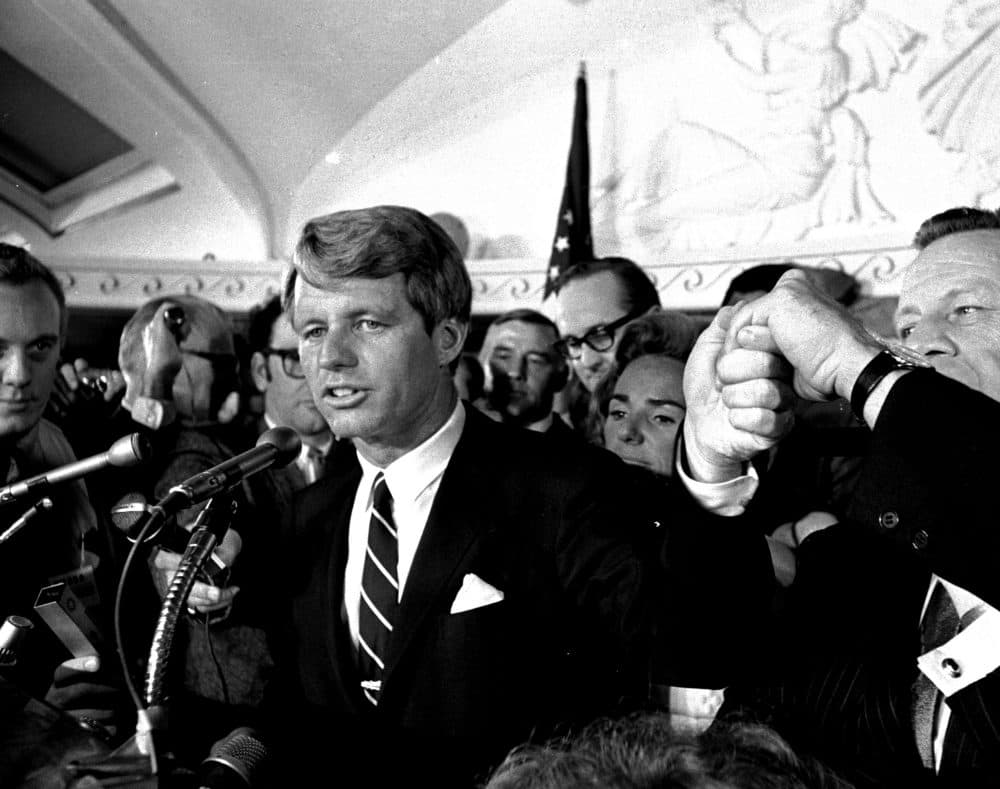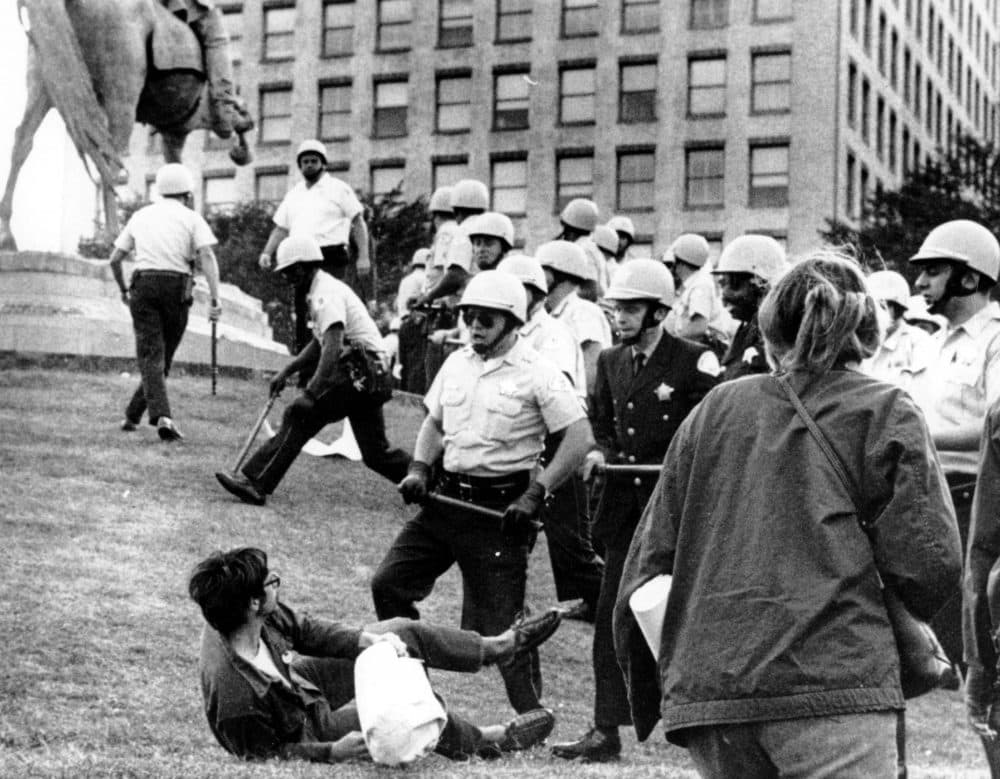Advertisement
Remembering 1968, 50 Years After Robert F. Kennedy's Assassination

Fifty years ago this week, Robert F. Kennedy won the California Democratic presidential primary. Shortly after he wrapped up his victory speech in Los Angeles, he was shot by an assassin. He died the next day, June 6, 1968.
Julian Zelizer (@julianzelizer), professor of history and public affairs at Princeton University and a CNN political analyst, joins Here & Now's Jeremy Hobson to discuss the event and the 1968 presidential campaign.
Interview Highlights
On Kennedy wrestling with the decision to enter the 1968 presidential race
"He had been thinking about doing this for a while, he had been talking with friends and colleagues. But he was very hesitant to do it. Some things happened in early 1968 that increase his motivation to run: the Tet Offensive in Vietnam, like many Americans he is shattered by the news this war would be ongoing. The Kerner Commission report leads him to be triply concerned about the state of race relations in the United States.
"But then what happens is, in March during the New Hampshire primary, the other candidate who is competing against Lyndon Johnson, [Sen.] Eugene McCarthy, does pretty well, unexpectedly well, in the primary. And this motivates RFK to believe that he can really compete against an incumbent president. So there's many parts of the mix that are at work."
"I don't think it's clear what would have happened, and that's why it's one of these amazing what-ifs to think about."
Julian Zelizer, on if Kennedy would have become the Democratic Party's nominee had he not been killed
On President Johnson's announcement on national television that he wouldn't seek another term
"That was a jaw-dropping moment where the president goes on television — nobody knows he's going to do this other than a small group of people who work with him — and he announces he's not going to run for re-election. And most people assume that he would. Most people still thought that even with the problems in 1968 he could be a pretty tough candidate. But he drops out, and he says he's going to focus on ending the war. He's going to focus on making sure the Great Society is financed. But one thing he won't do is run, and all of a sudden the field is wide open for people like Robert Kennedy, McCarthy and others to actually compete."
On if Kennedy would have become the Democratic Party's nominee had he not been killed
"It's hard to tell. This is one of the great what-ifs in political history, and many people think that he would have, especially after he wins in the California primary. But we do have to remember, the party was going to back [Vice President] Hubert Humphrey. And I'm not convinced that it was automatic that Robert Kennedy would have a path to the nomination. Humphrey is a stalwart. He's been not only vice president, he's been a key senator, and a lot of the party still didn't want to break either with the Johnson administration's position on the Vietnam War. So I don't think it's clear what would have happened, and that's why it's one of these amazing what-ifs to think about."

On the 1968 Democratic National Convention, which Humphrey called a "catastrophe"
"Well for many people who were watching it, it looked like the Democratic Party was out of control. They had been watching the fights within the party for a long time now with all the antiwar protests and the tensions between Democrats. But here it played out right on television, and you had the police in a city that was run by one of the most prominent Democrats, Mayor [Richard] Daley, the Democrats are inside trying to create order, and outside on the streets there are police clashing with protesters, and the protesters are angry not with the Republicans, but with the Democrats for not going strong against the Vietnam War. So this was the worst image for Humphrey to showcase at the convention. This looked like a party that was literally falling apart at the end of this turbulent decade."
On whether what happened in 1968 still feels momentous amid the current political climate
"I think it does, and looking back at that year is actually a reminder of some of the more chaotic and unstable moments we've gone through politically, and for different reasons. Today many people focus on [President Trump] and the kind of presidency he's conducting, whereas back in '68 it's even broader than that, with all the social conflict that's unfolding and and some of the instability with our institutions, and of course this war, which is massive and it's a total disaster in the minds of many people.
"So for me, I look back and it doesn't diminish how bad things got, but it's a reminder that we go through moments like these, and they're very difficult. The good news is we can move forward, and our institutions are able to recover from this. It's not guaranteed, but it should offer a little insight into how that happens."
This article was originally published on June 04, 2018.
This segment aired on June 4, 2018.